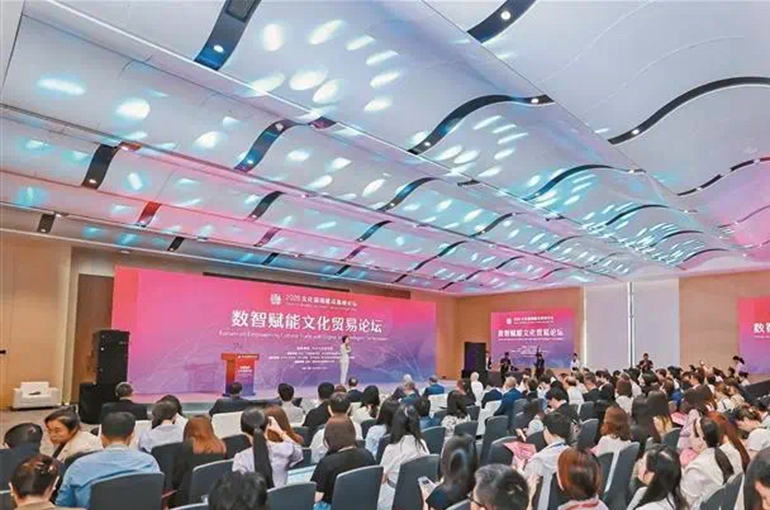 China Literature Leads the Way as Homegrown Content Makes Waves Overseas
China Literature Leads the Way as Homegrown Content Makes Waves Overseas(Yicai) May 28 -- China Literature Group has transformed from an e-book platform into a multi-format, multimedia ecosystem that is helping build a global online literature industry, the deputy secretary of the firm’s Party Committee said at a cultural powerhouse summit yesterday.
China Literature is no longer just exporting online novels, it is also exporting an entire business model, Wang Chen said at the ‘2025 Forum on Building Up China’s Cultural Strength and on Empowering Cultural Trade With Digital and Intelligent Technologies’ in Shenzhen.
Since China Literature first launched its overseas business in 2017, it has published 6,800 titles abroad, Wang said at the forum, which focuses on how digital tech is transforming cultural trade. The Shanghai-based firm now has 400,000 international authors creating their own stories on its platform.
China Literature’s strategy for going global ranges from writing e-books to the development of the whole industrial chain, Wang said at the event, which was attended by government officials, business leaders and scholars who discussed the way forward for Chinese cultural exports.
Wang shared some success stories at the forum. For example, women writers in the Philippines, Bangladesh and other developing countries have been able to earn a living through the China Literature platform, demonstrating the deep impact that online literature is having on cross-cultural exchanges, he said.
China Literature is also promoting the overseas localization of classic Chinese copyrights such as “Romance of the Three Kingdoms,” Wang said. For example, the company has set up a creators’ award in Japan to encourage local creators to put their own spin on the storyline and promote two-way cultural interaction.
New Formats
Micro dramas, which are bite-sized video series made for mobile viewing, have become a driving force of Chinese cultural exports. Crazy Maple Studio started testing the overseas micro drama market in August 2022, said Nan Yapeng, vice president of the San Francisco-based firm. After 10 months of trial and error, the company achieved a breakthrough in 2023. Its app has since topped the US download charts many times.
Last year, Chinese micro drama companies were using artificial intelligence to translate and promote their works overseas, winning over a large share of the US market. In the first quarter, the market size of China’s short dramas in the US quadrupled year on year with an estimated revenue of between USD2 billion and USD3 billion.
Micro dramas face the challenge of local content creation when they go overseas. More co-productions with local teams in North America and Southeast Asia will help content feel more authentic, said Nan. The government should also assist the export of finished dramas and script licensing through tax breaks and policy support, he added.
Future Path
In recent years, China has created a good policy environment for the development of cultural trade that supports companies trying to go global, said Kong Dejun, director of the Department of Trade in Services and Commercial Services at the Ministry of Commerce.
On the tech side, AI applications are a game-changer. Chinese companies now lead in multi-model large AI models, such as the VIDU video model, which is cost-effective and high-quality, said Liao Qian, vice president of Beijing Shengshu Technology. These technologies make it much easier to translate and generate content for micro dramas and online novels.
The forum also released the list of “2025-2026 National Cultural Export Key Enterprises and Projects.” Some 404 companies and 121 projects were selected to further promote the high-quality development of China’s cultural trade.
Editor: Kim Taylor